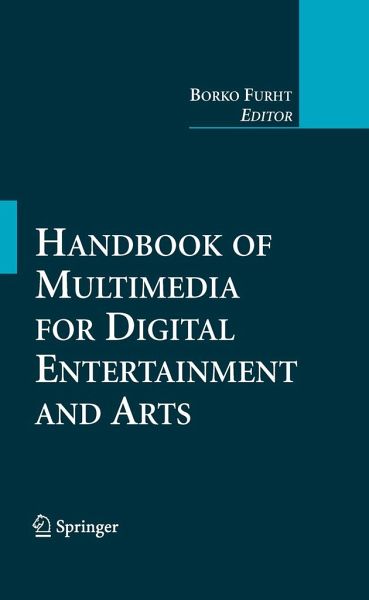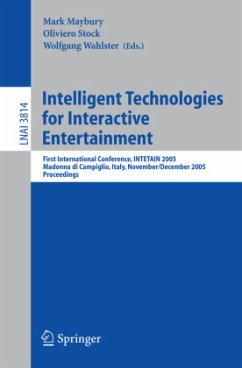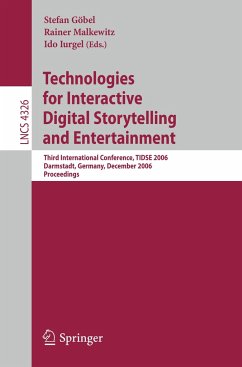
Handbook of Multimedia for Digital Entertainment and Arts

PAYBACK Punkte
86 °P sammeln!
The advances in computer entertainment, multi-player and online games, technology-enabled art, culture and performance have created a new form of entertainment and art. The success of this new field has influenced the development of the digital entertainment industry and related products/services, which has impacted every aspect of our lives.Handbook of Multimedia for Digital Entertainment and Arts is an edited volume contributed by worldwide experts in the field of the new digital and interactive media, and their applications in entertainment and arts. This handbook covers leading edge media ...
The advances in computer entertainment, multi-player and online games, technology-enabled art, culture and performance have created a new form of entertainment and art. The success of this new field has influenced the development of the digital entertainment industry and related products/services, which has impacted every aspect of our lives.
Handbook of Multimedia for Digital Entertainment and Arts is an edited volume contributed by worldwide experts in the field of the new digital and interactive media, and their applications in entertainment and arts. This handbook covers leading edge media technologies, and the latest research applied to digital entertainment and arts. The main focus of Handbook of Multimedia for Digital Entertainment and Arts targets interactive and online games, edutainment, e-performance, personal broadcasting, innovative technologies for digital arts, digital visual and auditory media, augmented reality, moving media, and other advancedtopics. The final chapters of this book present future trends and developments within this explosive field.
Handbook of Multimedia for Digital Entertainment and Arts serves as a primary reference for advanced-level students, researchers and professors studying computer science and electrical engineering. With the dramatic growth of interactive digital entertainment and art applications, this handbook is also suitable as a reference for practitioners, programmers, and engineers working in this field.
Handbook of Multimedia for Digital Entertainment and Arts is an edited volume contributed by worldwide experts in the field of the new digital and interactive media, and their applications in entertainment and arts. This handbook covers leading edge media technologies, and the latest research applied to digital entertainment and arts. The main focus of Handbook of Multimedia for Digital Entertainment and Arts targets interactive and online games, edutainment, e-performance, personal broadcasting, innovative technologies for digital arts, digital visual and auditory media, augmented reality, moving media, and other advancedtopics. The final chapters of this book present future trends and developments within this explosive field.
Handbook of Multimedia for Digital Entertainment and Arts serves as a primary reference for advanced-level students, researchers and professors studying computer science and electrical engineering. With the dramatic growth of interactive digital entertainment and art applications, this handbook is also suitable as a reference for practitioners, programmers, and engineers working in this field.














